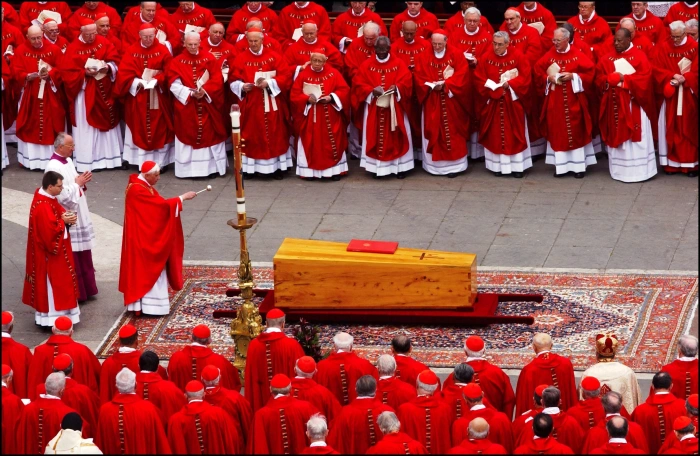The death of a pope is never a quiet affair. It signals the end of a spiritual era and the beginning of sacred transition, but history has shown that it can also usher in drama, mystery, and unexpected turns. While much of the papal death and succession process is governed by tradition and canon law, the human stories woven through these transitions are as captivating as they are sacred. Here are some of the most remarkable stories from the long and storied history of papal deaths.
Pope John Paul I: The 33-Day Papacy
In 1978, Albino Luciani, known as Pope John Paul I, was elected after the death of Pope Paul VI. He was dubbed “The Smiling Pope” and was widely loved for his humility and warmth. But just 33 days into his pontificate, he died suddenly in the night.
The Vatican’s announcement was swift, but the lack of a full autopsy and conflicting reports sparked a flurry of conspiracy theories—ranging from internal Vatican politics to financial scandals involving the Vatican Bank. Though no solid evidence of foul play has emerged, the brevity and mystery of his reign still invite fascination.
Pope Celestine V: The Resignation That Changed Everything
In 1294, the hermit monk Pietro del Morrone was elected pope as Celestine V, reluctantly accepting the papal crown at age 79. A deeply spiritual man, he found the role overwhelming and was ill-suited to the political manoeuvring of the Vatican.
Just five months later, he became one of the only popes in history to resign voluntarily. He issued a formal decree allowing popes to abdicate—a document later used by Pope Benedict XVI. Celestine returned to monastic life, but his successor, Boniface VIII, fearing his popularity, had him imprisoned. He died in confinement.
Pope Benedict IX: The Pope Who Sold His Office
In the 11th century, Pope Benedict IX shocked the Church by selling the papacy to his godfather. First elected as a teenager, his reign was marred by scandal, corruption, and immorality.
In 1045, he sold the office to Pope Gregory VI—an act that horrified many, yet technically fell within the legal grey zones of the time. He would later return and reclaim the papacy two more times, making him the only pope to hold office on three separate occasions.
His chaotic rule eventually led to reforms, including the stricter conclave process still used today.
Pope John Paul II: A Death that Moved the World
Fast forward to 2005, when Pope John Paul II, one of the most influential popes in modern history, passed away after a long battle with Parkinson’s disease. His final days were broadcast around the world. Millions gathered in St. Peter’s Square to pray as the end neared.
His funeral drew over 4 million pilgrims to Rome and was attended by kings, presidents, and spiritual leaders from all faiths. It was a moment of global unity and reflection.
His beatification process began almost immediately—an exception to the typical five-year waiting period. He was canonised just nine years later, one of the fastest in Church history.
Pope Benedict XVI: The Pope Who Stepped Down
In 2013, Pope Benedict XVI made history by resigning—something no pope had done in nearly 600 years. Citing declining health, he chose to step aside and take the title Pope Emeritus. His resignation shocked the world but opened new conversations about leadership, humility, and the evolving role of the papacy in modern times.
His death in 2022 brought full closure to his unique legacy. Pope Francis celebrated his funeral—an unprecedented event where a current pope presided over the funeral of his predecessor.
Final Thoughts: When Legacy and Mystery Intertwine
These stories remind us that the death of a pope is never just an ending. It is a hinge in the story of the Church, sometimes dramatic, sometimes spiritual, always significant. From the mystery of John Paul I to the humility of Benedict XVI, each papal death shapes the Church’s path and offers insight into the sacred, the human, and the unexpected.
Which story did you find most fascinating? Share your thoughts below or explore more on how the Church prepares for the passing of its leaders in our related posts.
